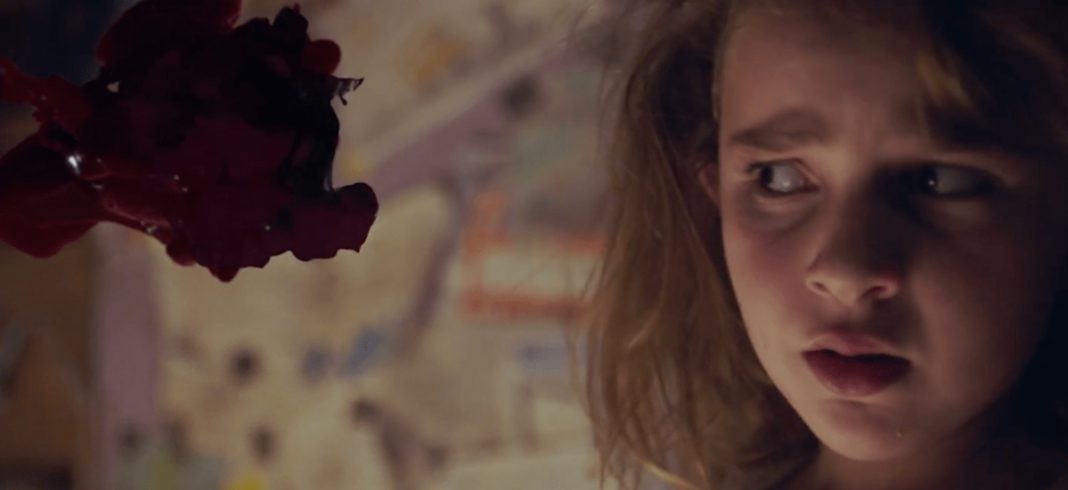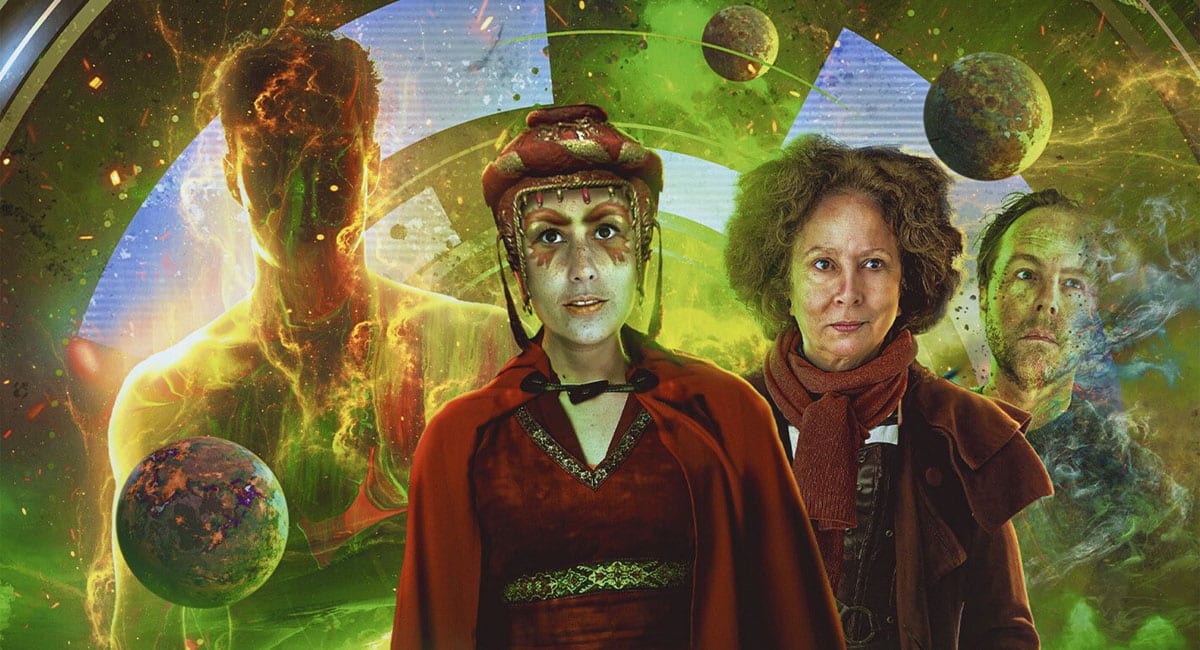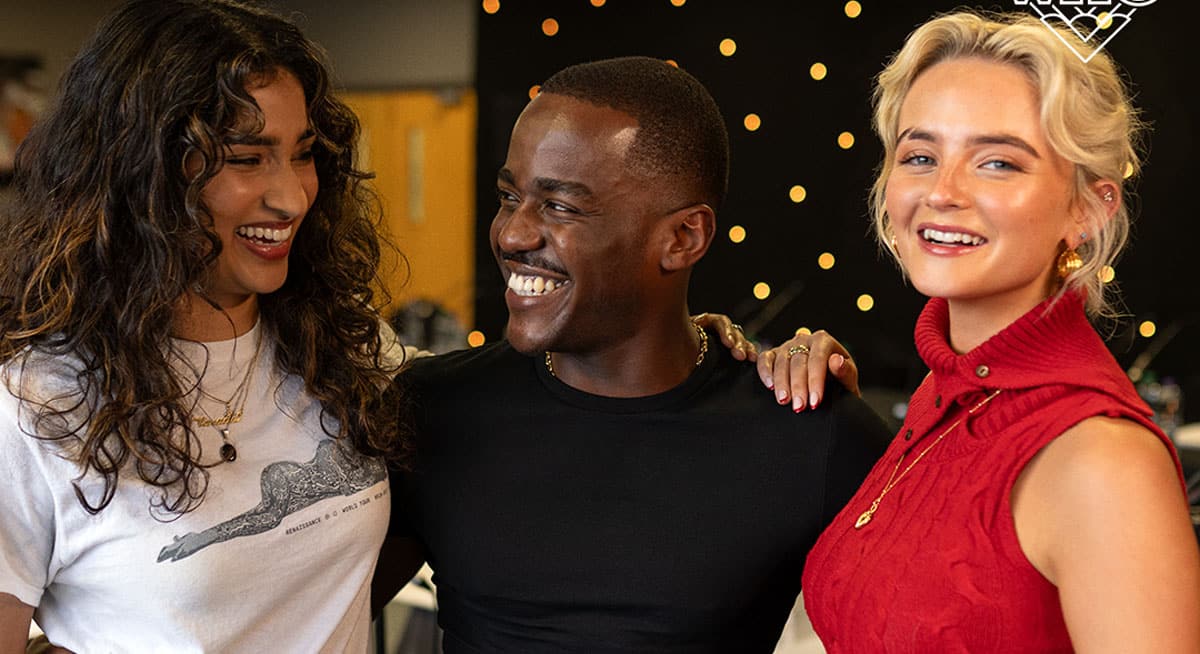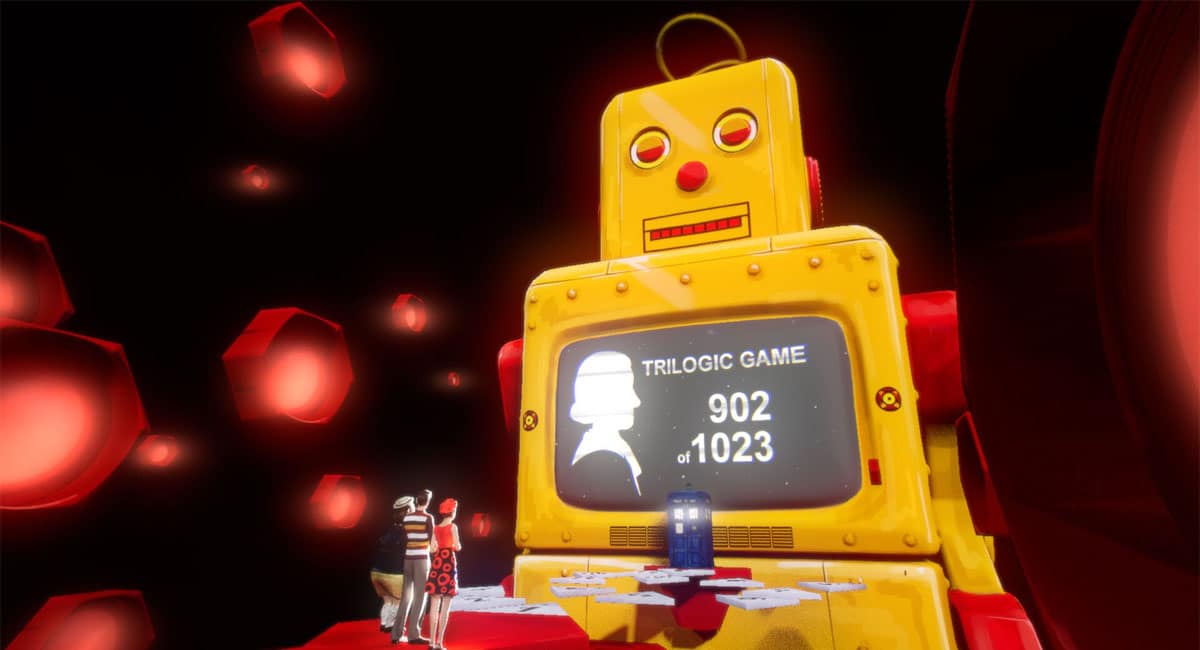It’s now been a year since filmmaker Zach Lipovsky and Adam B. Stein’s sci-fi thriller Freaks premiered at the Toronto International Film Festival (TIFF), and the movie has run the proverbial festival gauntlet and been shown literally all around the world. I personally saw the movie at What the Fest NYC, where the movie won that genre fest’s audience award, and it’s won a bunch of other sci-fi awards before and since.
The concept is that it takes place in a world where those with super-powers have been shunned and imprisoned, treated as they’re dangerous outcasts, a concept most comic readers will be familiar with on some level. This world is seen through the eyes of a young girl with powers named Chloe, played by Lexy Kolker, whose father (Emile Hirsch) has kept her trapped in their house to make sure she isn’t taken away or killed by the authorities. Chloe has reached an age where she wants to know about her mother, who she fantasizes is alive and out there looking for her. She has some temptation in the form of Bruce Dern as “Mr. Snocone,” a man driving around their neighborhood in an ice cream truck who might have his own nefarious purposes for Chloe.
Freaks is very good, and if it’s playing anywhere near you, I highly recommend seeking it out and seeing it on the big screen, because what Lipovsky and Stein have done is incredibly impressive when you consider how small a budget they must have had despite still getting name stars like Hirsch and Dern, as well as Amanda Crew (Silicon Valley) and Grace Park (Battlestar Galactica).
The story of how the filmmakers got Freaks made is somewhat inspirational, as The Beat found out when we got on the phone with the two of them a few weeks back.
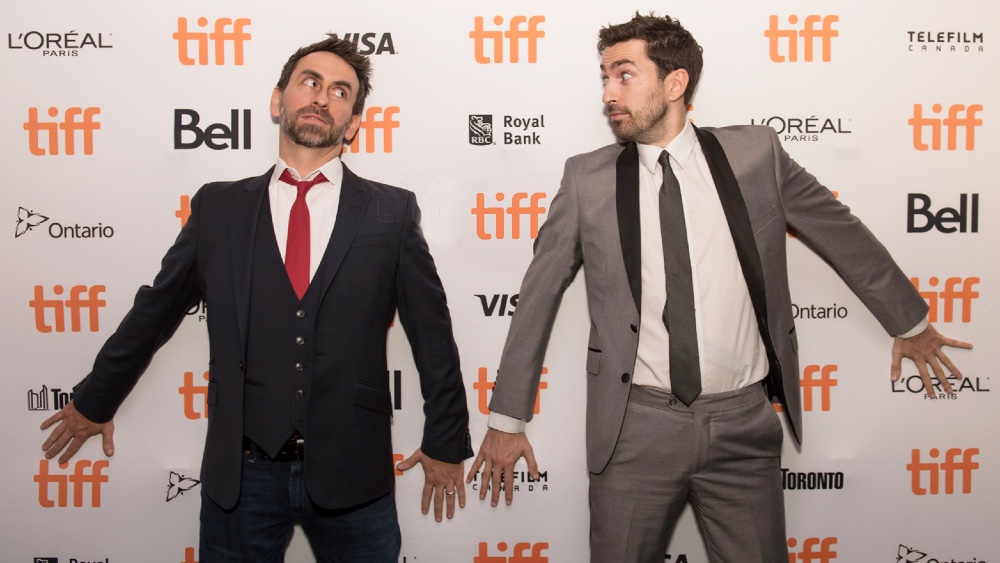
Zach Lipovsky: Adam and I met 12 years ago on a reality television show called On the Lot, which was basically American Idol but for filmmaking by Steven Spielberg. We were contestants that were set against each other to make different movies every week, and then America would vote and send one of us home. We became really close friends back then, and as you said, directed separately, trying to get our own careers going and trying to make movies. We each had some success, but we weren’t really getting the opportunity to make the movies that were really true to what we wanted to do that were in our voice. We went on this long walk once in L.A., and we were both at a low point and wanted to figure out something that would show the world what we felt like what we could do.
Adam Stein: We also had no money, so we were like, “We have to make the movie of our dreams… for zero dollars. How do we do that?” And that’s where the original germs of Freaks started.
THE BEAT: Obviously, the “no money” thing is a pretty big factor in making movies, which some people don’t realize – that you need more than an idea. What was the original idea that made you think it was something you could develop into a feature.
Stein: I was a new Dad at the time – I had a five year-old – and we were just fascinated by the way that kids experience the world and try to learn about the world. Seeing the world though a kid’s eyes where they’re trying to make sense of things that are real and things that are imaginary. What is actually dangerous out there and what was just a nightmare. Those sorts of questions are very fascinating to see kids ask. We thought, “What if we were in a sci-fi world and a kid was trying to figure out how the world works?” Wouldn’t it be interesting to put the audience in the perspective of a young child and only learn what the child learns and be asking those questions about the world themselves. That was kind of the first thought we had that became the inspiration.
Lipovsky: Yeah, and I think the other reason we wanted to use a child, was because we had no money, we looked at, “Okay, well what do we have? We don’t have money but what do we have?” At the very beginning, the very first version of this movie was gonna be Adam and I playing the lead roles with Adam’s son playing the lead character, shooting it in his house…
Stein: Sort of the Duplass Brothers style, that was what we were first inspired to do.
Lipovsky: So we made it a very personal, very grounded story, and as we were working on the script, and we started showing it to people, they said, “This is actually pretty good. I think actors might find these roles really juicy. You might not have to act in this movie.” (laughs) “You might be able to get people that want to do it, just because how interesting it is.” We started sending the script out, and Bruce Dern was the first actor to read it to get back to us and said, “I really like this. I want to be in this.” From that point on, it started the ball rolling.
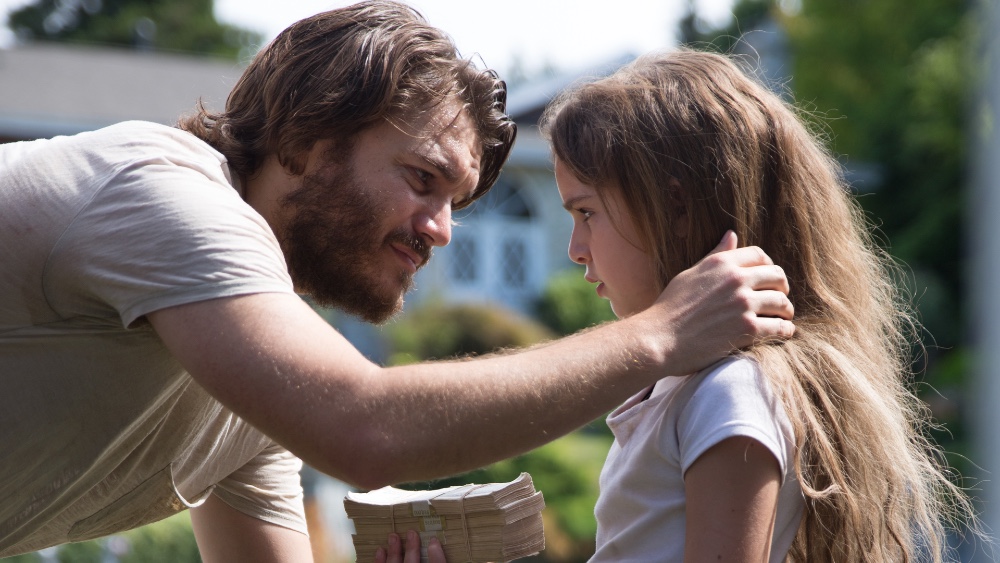
THE BEAT: That’s great to hear about Bruce Dern, as he’s an actor who has just gotten better with age, and he seems to be working harder than ever. He’s in Tarantino’s new movie, as is Emile…
Stein: It’s funny. Bruce actually hadn’t done a science fiction movie since 1972. His last science fiction movie was called Silent Running made by Douglas Trumbull, who had done the FX for 2001 – was famous for that and then made this movie starring Bruce. After that, Bruce said to himself or said to us, “I never wanted to do sci-fi again, because I felt like I didn’t just want to talk to robots and aliens. I wanted to play REAL people who are doing REAL stuff.” And that’s always what he looks for in role. In reading our script, he said that he didn’t really see the sci-fi world. He just saw the characters, and he could really sink his teeth into playing a father, playing a grandfather, trying to save his daughter. That was something he personally could identify with, and that’s why he wanted to do this movie.
Lipovsky: That’s kind of a pay-off for us, because the tone and concept of the movie was to take a science fiction premise and world, but apply the genre to sort of an execution of an indie drama. We looked at a lot of movies like Room and Beasts of the Southern Wild and The Florida Project, movies that were really grounded portrayals of characters, and then set that in a sci-fi world to try and get a new perspective on it. I think that’s what Bruce and the other actors really connected with.
Stein: We love sci-fi and we love horror since we were kids, we’ve just been such huge sci-fi fans, but lately, the big sci-fi movies were sort of predictable and fakey. We just said, “Okay, if this were really happening to real people in the real world, what would happen? How would they act? What would this feel like?” We kind of just wanted to get gritty and get down and dirty with the characters in this fantastical world.
THE BEAT: I actually might have asked you about Lexy at the Q&A after the “What the Fest?” screening where I first saw Freaks. Watching her on screen, holding her own against Bruce Dern and Emile Hirsch is just amazing, since they have so much experience, and they have some pretty tough scenes. How did you get her prepared to do some of those scenes, especially when violence is involved?
Lipovsky: It’s a pretty intense movie, and it’s a very intense role for anybody, especially someone who is seven years old. We searched [through] 1,200 actors and actresses and tried to find someone who could basically connect to their real experience, to the real emotions of the [story]. Lexy might not have gone through the things that Chloe goes through in the movie, but she’s felt those types of emotions. A lot of kids when they come in, they come in very rehearsed. They know every line, but they’ve forgotten the meaning behind the lines. They feel very robotic. We’ve done a lot of work with kids, and we worked with her to strip away worrying about the lines and just connect to what she is feeling and connecting to real things from her actual life that she’s felt. We would improvise arguments from her real life that she’s had with her real parents, just to get her in that emotional state, and then, we would start saying some of the lines, so that everything would come across as being very real.
Stein: For instance, we would rehearse the scene, and Lexy would tell us, “They let my sister to go to that sleepover party, but they didn’t let me go,” so, “Okay, let’s practice that. Emil, do that scene with her just to get her in the emotional state.” “You gotta let me go to the sleepover! It’s not fair!” and then, we would transition to the actual lines, which were more about, “I want to get ice cream. Harper gets to go to the park, and ̛I don’t, and it’s not fair.” Same emotion there but different story, and Lexi was just really great at tapping into those raw feelings that kids have. I mean, as a dad, I know how intense kids can be. They can be very, very fierce, and very passionate and very sad when they have feelings. I think when you grow up, your emotions get tamped down a bit or buried in intellect. We were really interested in exploring what the raw emotions of childhood are like in this intense environment.
THE BEAT: Do you guys know the work of Justin Benson and Aaron Moorehead by any chance?
Stein: Yeah, absolutely. Their movie is also Well GO, which is our distributor.
THE BEAT: Of course, because you were talking about making the movie with the two of you acting, and I immediately thought of those guys and how they made The Endless.
Stein: We’re probably less of actors than they are, but we were just thinking of doing it as a necessity. We premiered Freaks at Toronto [last] September, and Well GO saw it there and picked it up for theatrical, which is kind of a dream come true when you’re a filmmaker making your first feature like this. I think part of what they saw there was the success they had with Endless in terms of a mysterious sci-fi thriller feel.
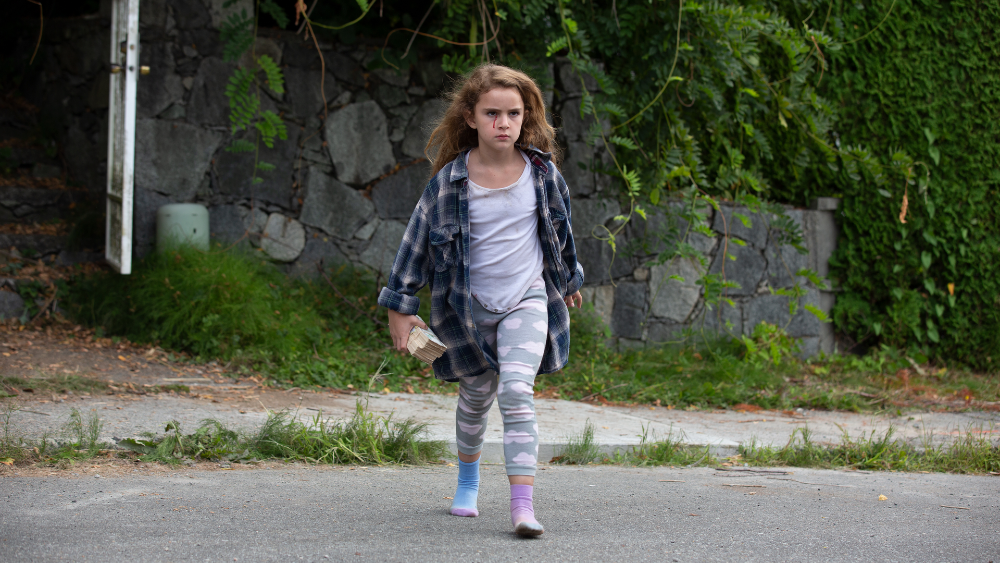
THE BEAT: I must have forgotten that, because Well GO releases so many Asian films, and I guess they’re trying to branch more into non-Asian films. What about the title “Freaks”? Obviously, there’s a very well-known genre film by Tod Browning with that same title. Was there any trepidation going with that title or any alternate titles?
Lipovsky: Yeah, we did have some trepidation, but we were exploring all sorts of different words that were an offensive label for people who are different, basically, but hadn’t already been taken by the real world. (laughs) We explored all sorts of different words, but nothing really had the intensity and the clarity of the word “Freaks.” We knew obviously of the super-famous movie from the ‘30s with the same title, but in the end, it just felt right for our project. It’s been a long time, almost 90 years since the other film, so we hoped that it wouldn’t create confusion, but also, it would compliment [it]. Both films have sort of a similar theme of trying to exist as being different from everybody else, so we wanted to explore that with the movie.
THE BEAT: Was this all shot in Canada? I really like the contrast between the indoor scenes and the outdoor scenes where it’s really sunny.
Lipovsky: We shot the movie in Vancouver, which is where I grew up, and a lot of that was because this is a small movie that we were basically making on favors and borrowed and stolen things. We kind of had to do our best to put the movie together with what we had, and shooting in your hometown can often give you that benefit.
Stein: We wanted it to feel like it could be happening anywhere, but one of the fun things is that when you start watching the movie, you think, “Oh, this is one of those movies that takes place entirely inside a house, okay, I get it,” and then twenty minutes in, she escapes the house, which hopefully makes people go, “Uh oh, I don’t know what’s going to happen next.” We always loved the contrast of Bruce Dern’s character, Mr. Sno-Con, taking her downtown in the middle of all these giant buildings, which is such a foreign world to her. That feeling is really fun.
THE BEAT: Do you know what you’re going to do next? Are you going to continue working together or back to doing your own things? What’s the next plan?
Lipovsky: Everything we’re doing moving forward is together, and what’s next, a lot of that has to do with how many people get to go see Freaks. People like yourself getting the word out there is what we really rely on, and the more people that show up on Friday the 13th, the more likely the next thing we’ll be doing is something more with Freaks.
THE BEAT: So you have other ideas to do in this world?
Stein: Oh, yeah. When we first came up and were talking about how to make this movie, we we had so many ideas for characters and situations in this world, and we could only tell a small slice of it and focus on this one family. Absolutely. We’re really intrigued by the idea of this world, basically a world where there are super-powers but no heroes. Nobody is suiting up to go fight crime. They’re just trying to survive. We feel like there’s a lot of stories that can be told in that world.
Freaks opens across the country on Friday, September 13. You can also read Carolyn Hinds’ interview with actor Grace Park right here.


